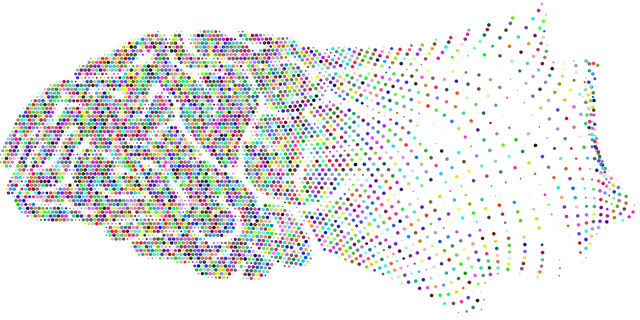In Lakewood, where spiritual and religious issues are prevalent, mental illness stigma significantly impacts individuals' well-being, leading to isolation and self-doubt. Effective strategies include therapy, self-care practices, and community outreach programs that educate and create safe spaces for open conversations about mental health. Lakewood Spiritual-Religious Issues Therapy initiatives serve as vital hubs, providing support and understanding within spiritual communities. Open dialogue, personal recovery stories, and mindfulness meditation break down barriers, while self-care encourages individuals to prioritize their well-being. These strategies empower people facing mental illness, reducing stigma and fostering resilience. Multifaceted approaches, including policy shifts and diverse treatment modalities, are needed to address the complex interplay of factors contributing to mental illness stigma.
Mental illness stigma, a pervasive societal issue, significantly impacts individuals’ willingness to seek help. This article delves into comprehensive strategies aimed at reducing mental health stigma within the context of spiritual and religious communities in Lakewood. We explore effective communication tactics, the empowering role of support groups and therapy integration, as well as policy and cultural shifts necessary for sustained progress. By addressing these aspects, we aim to foster a more inclusive environment where individuals can openly discuss their mental health journeys without fear of judgment.
- Understanding the Impact of Stigma on Mental Health
- The Role of Spiritual and Religious Communities in Reduction Efforts
- Effective Communication Strategies for Challenging Stigma
- Integrating Therapy and Support Groups for Stigmatized Individuals
- Policy and Cultural Shifts for Long-Lasting Change
Understanding the Impact of Stigma on Mental Health

Stigma surrounding mental illness can have profound effects on an individual’s overall well-being. Often, it leads to feelings of isolation and shame, preventing people from seeking necessary support and treatment. This internalized stigma can make individuals doubt their experiences, making it challenging for them to trust professionals or even themselves. As a result, many struggle silently, allowing symptoms to worsen. In Lakewood, where spiritual and religious issues are prevalent, understanding this impact is crucial. Therapy, coupled with self-care practices like journaling and exercise guidance, can offer much-needed relief, fostering mental wellness and breaking down barriers.
Community outreach programs play a significant role in reducing stigma by educating and connecting people. Implementing these initiatives can create safe spaces where individuals feel understood and supported. By promoting open conversations about mental health, the community can dispel misconceptions and foster an environment that encourages help-seeking behaviors. This collective effort ensures that those facing mental illness are not just treated but also embraced as integral parts of Lakewood’s diverse population.
The Role of Spiritual and Religious Communities in Reduction Efforts

Spiritual and religious communities play a pivotal role in stigma reduction efforts for mental illness. These communities offer unique spaces where individuals can find solace, support, and understanding. By integrating conversations about mental health into their gatherings, Lakewood Spiritual-Religious Issues Therapy initiatives foster an environment of empathy and compassion. Religious leaders can dispel myths and provide accurate information, reducing the fear and misunderstanding often associated with seeking help. They can also offer practical support through peer mentorship programs and community outreach, connecting individuals with appropriate healthcare services while encouraging self-care practices rooted in their faith traditions.
Moreover, these communities contribute to mental health advocacy by promoting cultural competency training for healthcare providers, ensuring that care is accessible and respectful of diverse beliefs. Through empathy-building strategies and resilience-focused initiatives, they empower members to support one another through life’s challenges. This holistic approach not only strengthens community bonds but also empowers individuals to navigate their mental health journeys with dignity and hope.
Effective Communication Strategies for Challenging Stigma

Effective communication plays a pivotal role in challenging mental illness stigma within communities, including those with spiritual and religious backgrounds, such as those seeking Lakewood Spiritual-Religious Issues Therapy. Breaking down barriers requires open dialogue that educates and humanizes. Sharing personal stories of resilience and recovery can be a powerful tool to dispel myths and showcase the humanity behind mental health struggles.
Incorporating practices like mindfulness meditation into conversations can foster empathy and understanding. Self-care practices encourage individuals to prioritize their well-being, shifting the narrative from weakness to self-love and resilience. Through these strategies, mental illness stigma reduction efforts can gain traction, creating a more supportive environment for those facing mental health challenges.
Integrating Therapy and Support Groups for Stigmatized Individuals

For individuals dealing with mental illness and associated stigmas, integrating therapy with support groups can be a powerful tool for recovery. Lakewood Spiritual-Religious Issues Therapy offers specialized programs designed to create safe spaces where participants can connect with peers facing similar challenges. These group settings facilitate open discussions, fostering understanding and reducing isolation. Through shared experiences, members learn they are not alone in their struggles, breaking down barriers and promoting empathy.
In addition to providing emotional healing processes, these combined therapies encourage the development of essential social skills. Participants learn effective communication techniques, build confidence interacting with others, and gain valuable insights into managing their conditions. Furthermore, self-care routine development for better mental health is emphasized, encouraging proactive strategies to maintain well-being.
Policy and Cultural Shifts for Long-Lasting Change

Stigmatization of mental illness persists due to a complex interplay of social, cultural, and policy factors. Long-lasting change requires multifaceted approaches that go beyond mere awareness campaigns. Policy shifts are essential to ensure equitable access to quality mental health care, including integrating spiritual and religious therapies in public healthcare systems. This acknowledges the significant role faith and spirituality play in many individuals’ lives and coping skills development. By incorporating diverse treatment modalities, we move towards a more inclusive and compassionate society that values mental wellness as a fundamental aspect of overall well-being.
Cultural attitudes heavily influence perceptions of mental illness, often perpetuating harmful stereotypes. Efforts to reduce stigma must address these deeply rooted beliefs by fostering open dialogue between communities, healthcare providers, and religious leaders. Encouraging conversations about mental health within spiritual contexts can help dispel myths and promote understanding. This collaborative approach not only strengthens mental illness stigma reduction efforts but also enhances the effectiveness of interventions tailored to meet the unique needs of individuals from diverse backgrounds, including those seeking support through Lakewood spiritual-religious issues therapy.
Mental illness stigma reduction is a multifaceted endeavor that requires collective efforts from communities, healthcare providers, and policy makers. By fostering understanding through effective communication strategies, integrating therapeutic support, and encouraging spiritual and religious involvement, we can create a more inclusive society that prioritizes mental well-being for all. Lakewood spiritual-religious issues play a significant role in this process, offering unique perspectives and resources to challenge stigma and promote healing. Through sustained policy and cultural shifts, we can ultimately revolutionize the way we support individuals facing mental health challenges.














